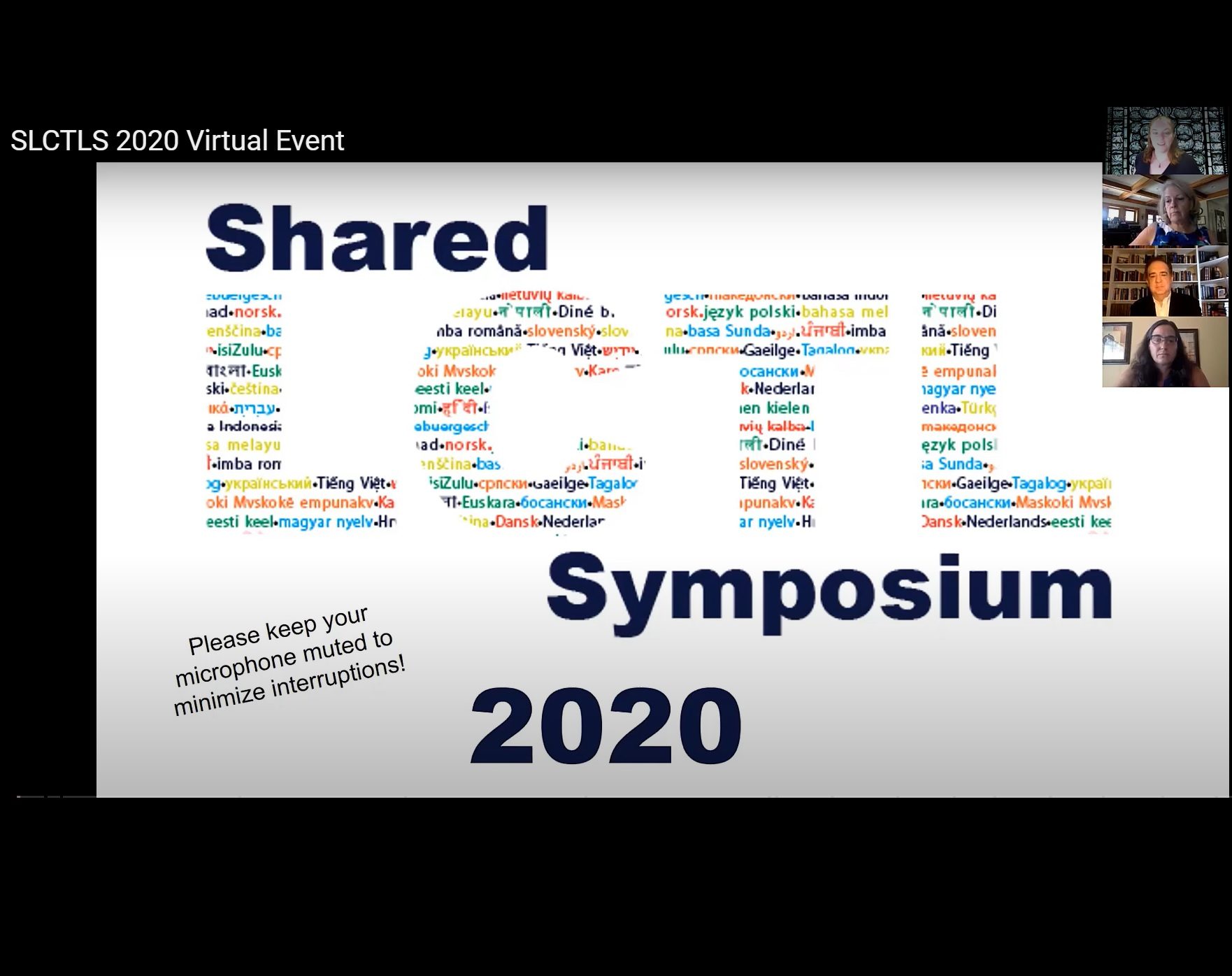Due to the coronavirus pandemic, we were unable to hold the Shared LCTL Symposium 2020 in person and pivoted to an online event. For the first part of SLCTLS 2020, four panelists shared their experiences of the constantly changing educational environment and expectations surrounding online instruction. The second part of SLCTLS 2020 was quick “lightning talks” given by a variety of instructors, on the topic of best practices in online instruction. The speakers at this year’s Symposium shared innovative ideas to guide us through our current moment and pointed the way forward in using technological resources in language teaching. The blog post below gives a short description of the panel presentations and lightning talks. For more detailed information about these presentations or to watch the recording of the SLCLTS event, please visit the SLCTLS website!
Panel Presentations
Four panelists presented at the 2020 SLCTLS event. Topics of presentation focused on the rapid transition to fully online instruction because of the COVID-19 pandemic. Lauren Rosen from the University of Wisconsin System presented on some best practices for transitioning to fully online instruction, such as embracing synchronous classes a few times a week and ensuring that students engage with content and prepare adequately before those synchronous meetings. She added that the course plans developed during the pandemic may have impacts well after COVID-19. In a similar vein, Tom Garza from the University of Texas at Austin shared some best practices for conducting online lessons and assessing learners via Zoom. These included providing learners with prompts for engagement, using authentic materials, encouraging learner-centered participation, providing feedback based on learners’ performance in the assigned activities. He also suggested using that feedback for formative purposes, such as planning break-out room activities or assigning homework. Lastly, he advised that instructors should remember to practice inclusivity while teaching remotely by addressing the needs of all learners and selecting instructional materials that show diversity.
Cory Duclos from Colgate University and Cathy Baumann from the University of Chicago both emphasized the viability of remote teaching, which, they pointed out, LCTL instructors had pioneered even before the pandemic. Cathy Baumann noted that LCTL instructors’ prior experience with teaching remotely helped their language center reach the decision to move language classes online quickly by utilizing hybrid classes and using Qualtrics to administer high-stakes exams effectively. She observed that moving certain meetings and events online also markedly improved attendance, opening the door to potential changes that may be adopted more broadly once in-person events resume. Cory Duclos discussed how the situation brought about by the pandemic could ultimately lead to gains for LCTL instructors. The current situation has created a newfound awareness of online teaching and learning techniques among other members of the faculty and the administration. With this experience of remote teaching and learning, administrators and other faculty members are now “speaking the same language” as LCTL instructors. Going forward, this will allow LCTL instructors to better communicate the goals and value of their courses and even advocate against budget cuts.
Lightning Talks
Nine lightning talks were also given at the event. Topics included the following ways of improving the online language teaching/learning experience:
- Learning apps (LearningApps.org) for creating or modifying activities (Anna K. Dyer)
- Project-based learning (PBL) to promote learner autonomy and the 4Cs (Communication, Creativity, Collaboration, Critical Thinking) (Suheyla Demirkol Orak)
- Blogging as a formative assessment tool (Alice McLean)
- Integrating native-speaker conversation partners into the curriculum through online programs e.g. NaTakallam (Eman Saadah)
- Creating “student success videos” to market the course (Shiva Rahmani)
- One-minute videos by students to not only check attendance of a large class but also assess students’ comprehension of the day’s content (Meejeong Song)
- Collaborative note-taking among students (Shaheen Parveen)
- How to use the Annotate function on Zoom (Runqing Qi)
- How to teach students to use handwriting on Zoom (Shannon Spasova).
Presenters agreed that remote instruction can be as successful as F2F instruction as long as adequate preparation is done, and if online platforms are properly utilized for instruction, assessment, and testing. As a reminder, for more detailed information about these presentations (including more detailed summaries of each presentation’s content) or to watch the recording of the SLCLTS event, please visit the SLCTLS website!
